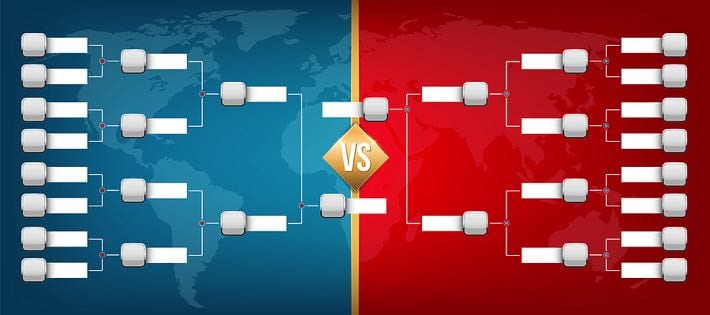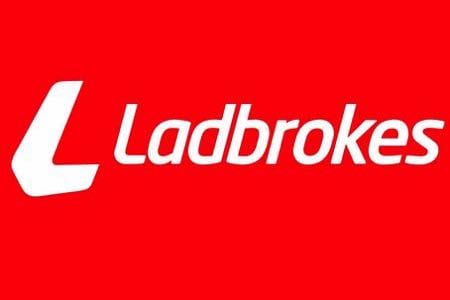 Vernons was established in 1925, offering big prizes to players of the company’s football pools. They were a rival company to Littlewoods, Brittens and Zetters, with the four doing battle for supremacy in the football pools market. The pastime remained popular throughout most of the twentieth century, only really finding its popularity waning after the advent of the National Lottery in 1994.
Vernons was established in 1925, offering big prizes to players of the company’s football pools. They were a rival company to Littlewoods, Brittens and Zetters, with the four doing battle for supremacy in the football pools market. The pastime remained popular throughout most of the twentieth century, only really finding its popularity waning after the advent of the National Lottery in 1994.
Even then, the company continued to thrive, making a move into the world of sports betting, as well as joining forces with Littlewoods and Zetters to create the Football Pools. Things seemed to be going from strength to strength for Vernons when the company was bought by Netplay TV, but when it eventually fell into the hands of Betsson things began to go downhill. Betsson essentially decided that they didn’t want the Vernons brand and so closed it.
The History of Vernons
Before exploring what happened to Vernons in the modern day, it’s good to get a clearer sense of the brand’s long and illustrious history. In order to do that, we firstly need to understand the popularity of the football pools, which is an activity that can trace its history back to before the football league even existed.
The Origins of Football Pools
In the 10th of September 1887 edition of the Cricket & Football Field newspaper, a prize of one guinea was offered to the reader that successfully predicted the results of four different football matches that were due to be played the following weekend. A coupon was printed in the paper that readers could cut out and fill in, returning to the newspaper’s offices on the Friday before the matches were due to take place.
There was no charge to enter the competition other than the cost of postage, with readers encouraged to enter several coupons in order to get them to buy more than one newspaper. It was a competition that caught on, with other papers soon following suit. By 1910, The Umpire had increased the prize to £300 if readers successfully predicted six different football results, such was the excitement of readers for the competition.
The Creation of the ‘Pools’

In Birmingham, a man named John Jervis Barnard had created a competition in which people bet on the outcome of football games. The winner would be paid whatever money had been paid into the ‘pool’, minus ten percent that was used to cover costs. He was struggling to make a net win when John Moores, Colin Askham and Bill Hughes heard about the enterprise and thought that they could do it better.
So, it was that the first Littlewood Football Pool was launched on the first of February 1923, with the men hiring a small office in Liverpool to print the first 4,000 coupons. They attempted to sell them outside Old Trafford, with Moores handing out the coupons alongside some youngsters keen to earn some money. Just 35 coupons were returned for a total of £4 7s 6d, so the men decided to double-down.
They printed 10,ooo coupons that they took to Hull, handing them out before a match and getting only one back in return. It continued to lose money, so the three men had a meeting at their place of work were John Moores paid the others £200 each to buy their shares in the company. Slowly but surely, the Pools began to take off, becoming one of the most exciting and popular forms of betting in the United Kingdom and, by 1930, Moores was a millionaire.
Rival Pools Are Formed
Just as John Moores and his friends had seen the pools offered by Barnard in Birmingham and decided that it could be a success, so too did other businesses see what the Littlewoods crew was attempting and decide that there was a market to be exploited. Vernons’ Pools was founded in Liverpool in 1925, with Zetters coming along eight years later. By 1936, as many as 28 different pools companies existed.
Despite the 1934 Betting and Lotteries Act restricting pool betting to a degree, it continued to grow in popularity so that by 1936 the 28 companies shared revenue of nearly £30 million. For every six million postal packets sent in the UK, four million of them were pools postal entries. The English Football League wasn’t keen on the betting aspect of the pools, doing what they could to thwart pools companies from publishing coupons.
The Football League began to only announce the long-distance fixtures on a Thursday night, with other fixtures announced on the Friday in order to stop pools companies from creating coupons. They responded by simply offering coupons with just the home side printed before they eventually began to get leaks of the fixtures. There were even attempts to ban the pools in parliament, but they failed.
When the Post Office refused to deliver pools coupons during the Second World War because they were deemed to be non-essential items, a Unity Pool organisation was created in order to allow the seven largest pools companies to produce joint coupons rather than sending out their own. By 1947, the revenue from pools had grown to around £70 million a year, partially thanks to it being one of the largest prizes on offer.
The Beginning of the End of Vernons
At its peak, around 10 million people played the football pools each week, with £2,924,622 won on the weekend that the National Lottery was inaugurated. The start of the pools decline in the wake of the Lottery launching led to just seven hundred thousand players in 2007. More importantly, the various companies that had been so popular when the pools were at their height began to close down their pools operations.
Vernons did so in February of 1998, such was the extent to which the National Lottery had hit the pools hard. Vernons initially ran a game called Easy Play, which was done with the National Lottery during the 1998-1999 football season. Having been acquired by Ladbrokes in 1989, Vernons went back to offering football pools and then was bought by Sportech in 2007, with Sportech having already bought Zetters five years earlier.
During the summer of 2008, Littlewoods Gaming, which was a division of Sportech, announced that it would be launching an online pools competition called the New Football Pools, eventually becoming known simply as the Football Pools. It provided classic pools alongside different variations. Sportech sold the company to OpCapita in 2017 for £83 million, though the Vernons name was already operating separately by that point.
Vernons Diversified

Seeing the writing on the wall for football pools, Vernons began to diversify as the internet became a going concern. Ladbrokes had bought Vernons at a time when the football pools was at an all-time high, with the company attracting two hundred thousand customers a week compared to the half a million that used the Ladbrokes service. Sportech then began looking at the company’s books at a time when it reported pre-tax net wins of £5.9 million.
At the time of Sportech’s approach to buy the company, it was operating solely through the internet, telephone and by using the direct debit service. It was whilst under the umbrella of Sportech that Vernons launched an online casino and poker room, using Playtech’s software to do so. That was in addition to the bingo and lottery features that the company had already launched, making them something of a one-stop shop.
In February of 2017, the Stockholm listed sports betting operator Betsson AB bought NetPlay TV for £26.4 million. This purchase meant that Betsson acquired Jackpot24/7, SuperCasino and Vernons, with the company confirming that they had a ‘long-term view’ of how to best utilise the products of NetPlay. NetPlay had itself bought Vernons from Sportech for £3 million in 2013, representing a tidy net win for the company.
The End of Vernons
Having been in and out of the public eye over the years since the introduction of the National Lottery, Betsson AB finally decided to put Vernons out of its proverbial misery in 2019. It came in the wake of the company attempting to focus its energies on the UK brands that it had bought as part of the NetPlay deal, ending TV contracts for other gaming subsidiaries. It was to concentrate on the digital side of Vernons, Jackpot24 and SuperCasino.
Part of the 2019 plan was to shut down the company’s UK presence, with the NetPlay office in Battersea Studios closing down. The issue was that the 2017 purchase of NetPlay TV’s portfolio was intended to give Betsson a foothold into the UK market but failed to do as much. Instead, the NetPlay TV assets ended up dragging down the group’s performance and let to a reconsideration around why Betsson was keeping them open.
The fact that Betsson didn’t much rate the various brands that they acquired from NetPlay led to the company essentially doing little more than running the companies into the ground. They all but abandoned the site, despite a rebrand as BetVernon. The site felt old school, failing to be brought up to date in any meaningful fashion and therefore not attracting a new base of customers. Overcrowded pages and a slow system meant customers abandoned BetVernon too.
Vernons was shut entirely by Betsson AB in 2019 after the company decided that it was costing it more money to keep the sight operational. It was to be the beginning of the end of the majority of Betsson brands, with the company all but abandoning the UK market in October of 2020. It was at that point that the remaining brands were consolidated into one, blaming the UK regulatory framework for its decision.
The End of a Much-Loved Brand
For some, the name of Vernons, BetVernon and any other variation of the company will mean nothing. For others, however, especially those of an older generation, Vernons was a name synonymous with a purer time for betting. At its height, around 15 million people took part in the football pools, desperate as they were to win the big prizes on offer and follow in the footsteps of Viv Nicholson who vowed to ‘Spend, spend, spend.’
The closure of Vernons will have meant little to the younger bettors out there, but for the older ones it was yet another nail in the coffin of the older style of company that existed before the boom of online betting. Whilst Vernons had moved online itself in recent years, it will always be most fondly remembered for its part in the explosion of the football pools that itself paved the way for the world of online betting that would eventually kill it.